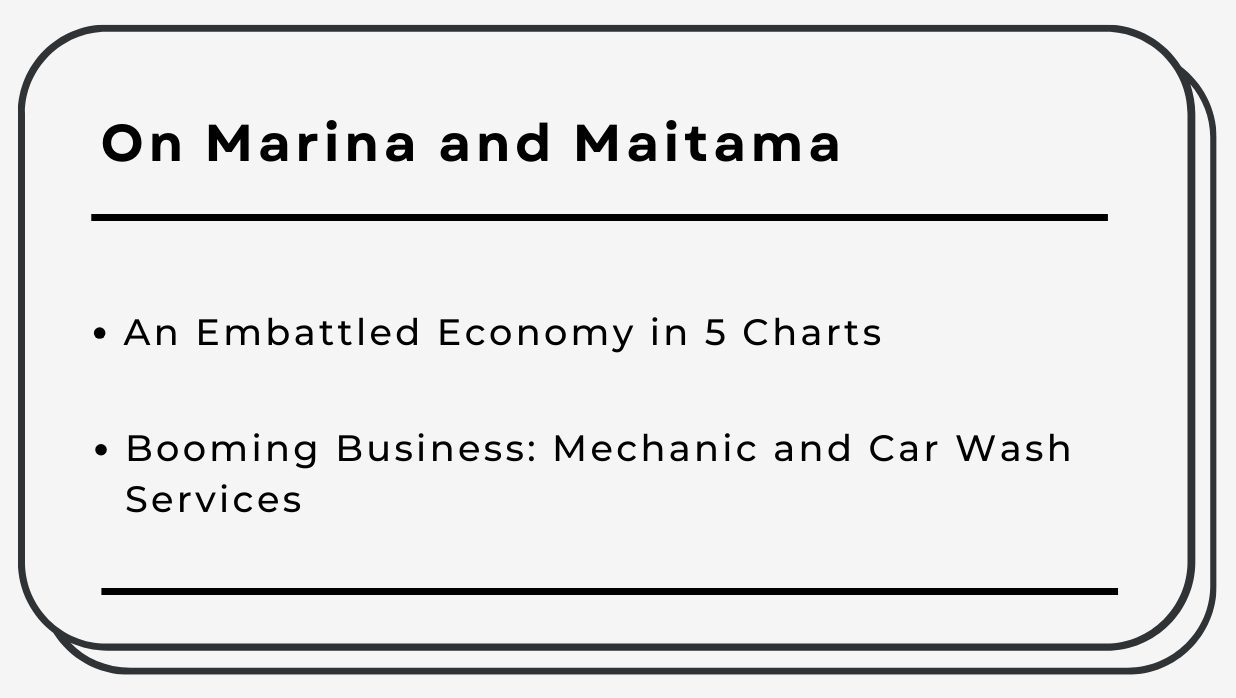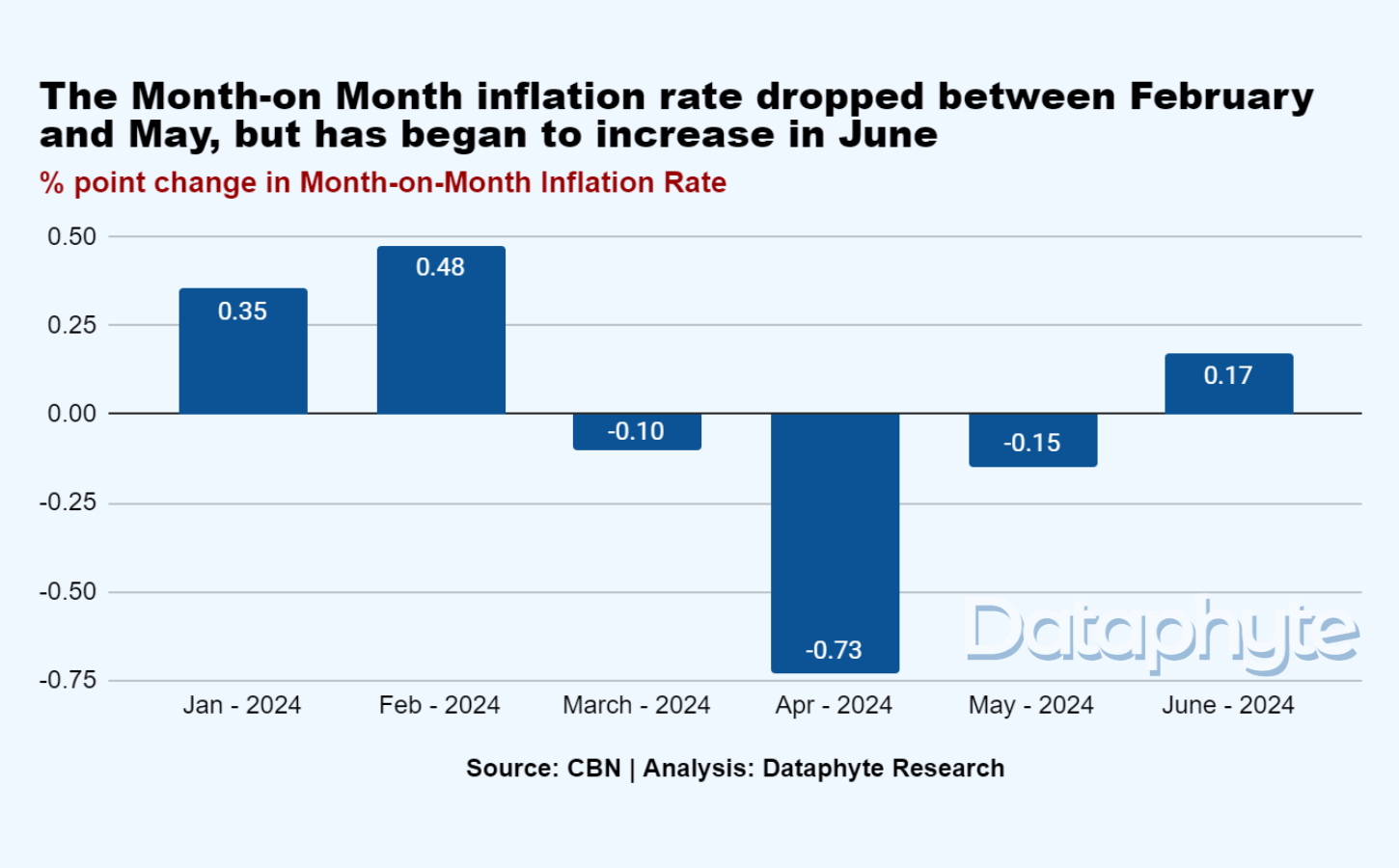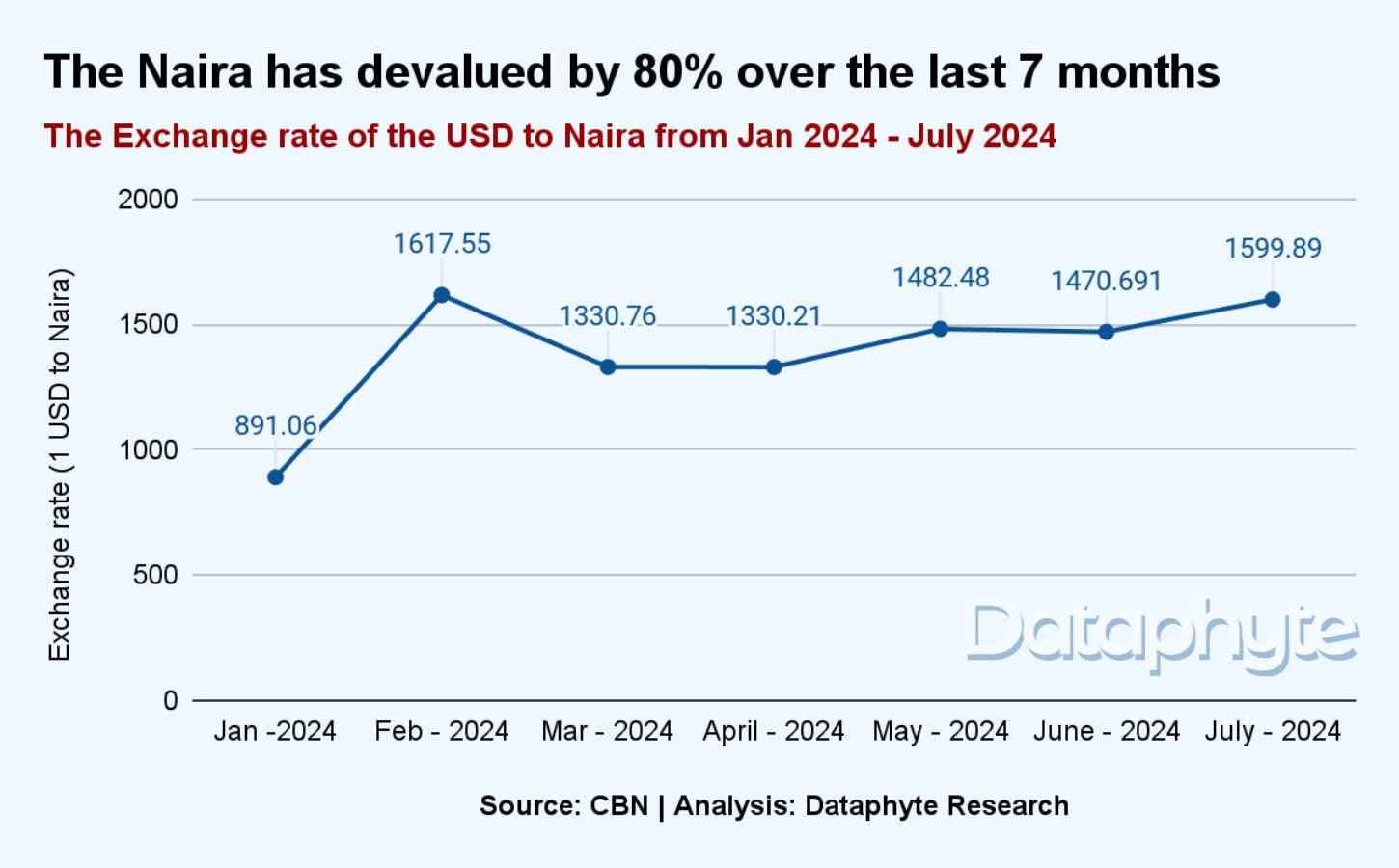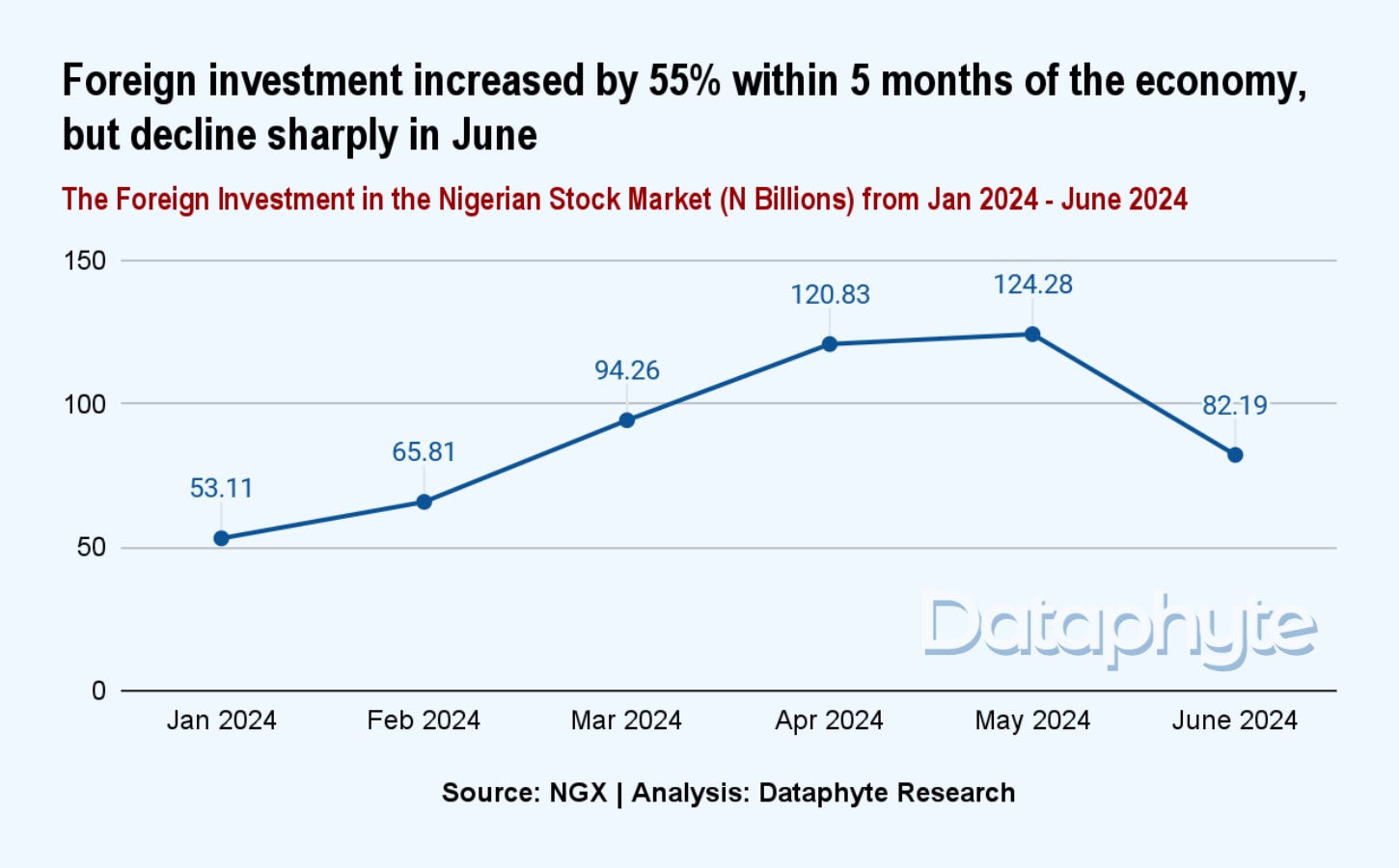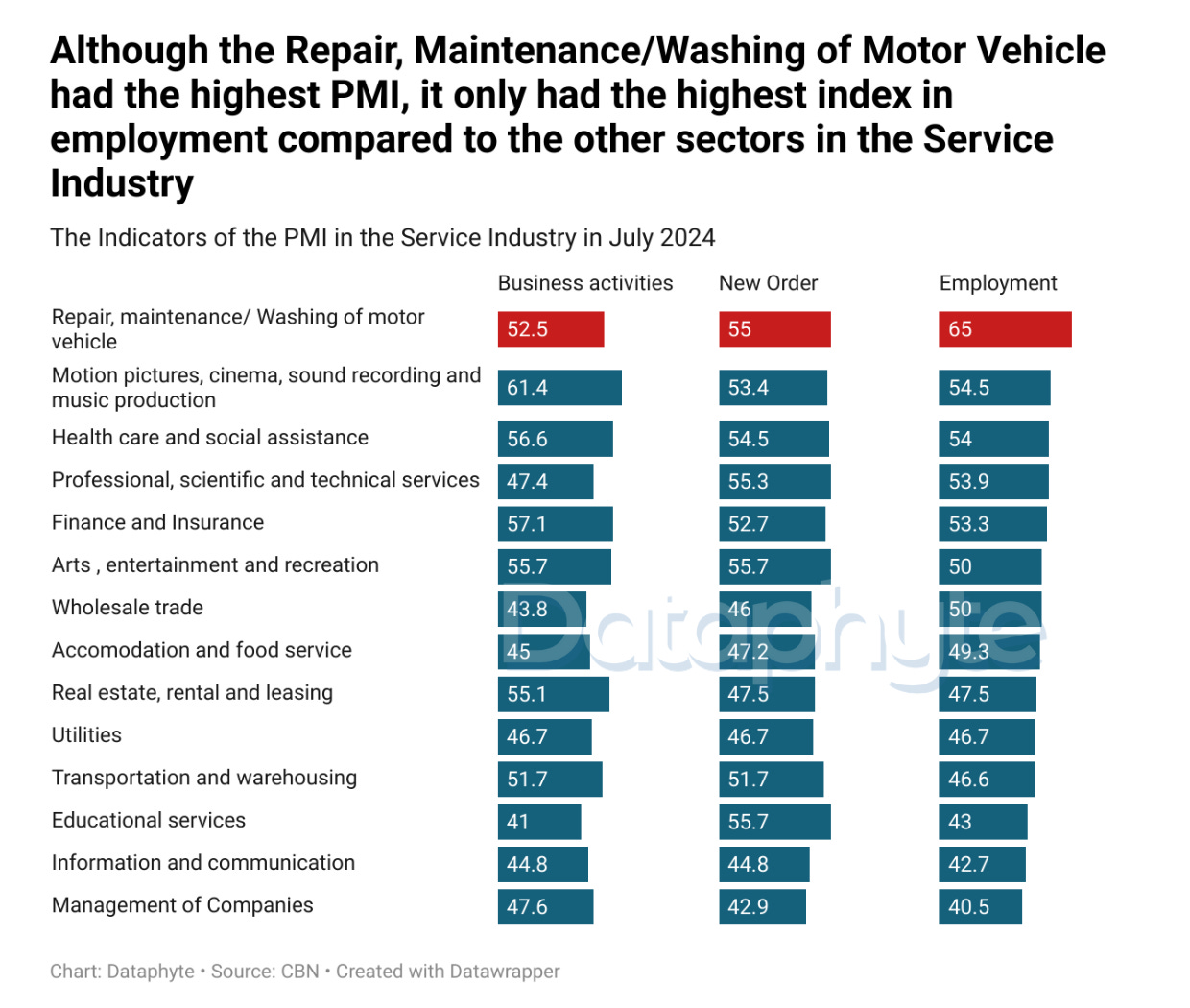An Embattled Economy in 5 Charts
+Booming Business: Mechanic and Car Wash Services
An Embattled Economy in 5 Charts
The Minister of Finance, Wale Edun reported to the Council of State that the Nigerian economy is growing on a broad level.
This suggests that all the macroeconomic indicators such as productivity, employment, income, and investments have increased within the last 7 months of the year.
“We looked at the data, or we reported on the evidence and the data of this half year for which data was available, compared to the first and second quarters of 2023. And in broad terms, the economy is growing.
“The balance of payments, in particular, the trade balance and a current account balance, are in surplus. The exchange rate is stabilizing, and inflation, though high, uncomfortably high for the liking of Mr President and his team, is slowing, and it is set to fall,” he said.
The NBS data on Nigeria’s Real GDP showed that the country’s Real GDP growth slowed down by 0.48% between Q4, 2023 and Q1, 2024. The Real GDP growth in Q4, 2023 stood at 3.46% and growth rate in Q1, 2024 stood at 2.98%.
Although there was a decline in the Real GDP growth rate between Q4, 2023 and Q1, 2024, the country’s Real GDP growth is better than it was in the Q1 of 2023.
This implies a decrease in the productivity/output of the country, especially in the first quarter of the year.
Although the Real GDP growth in Q1 of 2024 showed a decrease, the Stanbic IBTC Purchasing Managers’ Index (PMI) which measures the productivity of the private sector showed that the business environment experienced an expansion within Q1 and Q2 of 2024.
The PMI stood at above the 50.0 benchmark between January and June, but deteriorated in July.
According to the report, the contraction in business activities in July shows there has been a reduction in output and demand by customers as the country’s economy enters the Q3 of 2024.
This decline is as a result of the continued rapid rise in production cost and selling prices of goods and services within the last 7 months.
The Headline inflation, which reflects price stability, shows that the prices of goods and services have been on the increase since the beginning of the year. As of June, it stood at 34.19% from 33.95% recorded in May.
Despite the increase in the headline inflation rate, the month-on-month inflation rate slowly declined between the months of February and May, but sharply increased in June.
The increase in inflation rate has been blamed on the continued weakening of the country’s currency between January and July as most of the raw materials used in the production of goods and services are sourced abroad.
The increased demand of the dollar continues to put pressure on the Naira. The Naira reached its second lowest level in the year in the month of July.
The Naira has devalued by 80% within the last 7 months. The Naira fell from N891.06 to N 1599.89 against the dollar in July.
Despite the instability in prices and devaluing of the Naira, foreign investment increased by 55% between January and June, regardless of the sharp decline in June.
Also, the country experienced a trade deficit in Q1. The value of imports was higher than the value of exports by N6,524 billions.
The NBS data showed total exports stood at N12,643 billions while the total imports stood at N19,167 billions.
The contraction in business activities did not deter employment, as employment and job creation continued to rise slightly in the last 7 months, as stated in the Stanbic PMI Report.
The mix of business indices and macroeconomic rates showed that the economy was not in the best shape in the first half of the year.
As indicated by Wale Edun, there are still intervention programs on the way to decrease the cost of living and increase growth in the different sectors of the economy.
“The effort was going to continue to ensure that the interventions and measures to ameliorate the high cost of living for individuals, for the agricultural sector, for industry, for Small-Scale businesses, were going to continue to be implemented with all efforts needed for success.
“And on that basis, we reported an optimistic outlook for the Nigerian economy and the Nigerian society in general, as a result of prospects for economic growth and economic progress,” he stated.
Booming Business: Mechanic and Car Wash Services
Mechanic and car wash services have emerged as the top performing sector within the growing service industry in Nigeria, the data from the CBN’s Purchasing Managers’ Index (PMI) for July shows.
This implies that there was a growing demand for car repairs, maintenance/washing (productivity), and increased job opportunities within this sector of the economy.
The PMI for Repair, Maintenance/ washing of vehicles is 58.8, which is the highest Index score in the service industry PMI.
According to CBN , “the PMI is computed based on responses regarding the direction of change in different aspects of respondents’ business activities.
“An index above 50.0 points indicates an expansion in business activities while below 50.0 points shows a contraction in business activities. An index of 50.0 indicates a no-change situation.”
The sector recorded the sixth highest growth in business activities with an index score of 52.5, fourth highest in customer demand (New order), 55.0 and highest employer of labour, 65.0 within the service industry.
The sector is contributing significantly to the overall economy, as seen in its productivity, employment and activity level.
PWC's data on the Automotive Industry in Nigeria revealed that 70% of the cars in Nigeria are used cars.
“Nigerian used cars that are resold may require a significant level of bodywork and other repairs depending on the former users’ maintenance habits, (they) rarely have any service history and generally have lower resale value,” the PWC Report states.
The rise of mechanics and car wash services as the highest-performing sectors in Nigeria’s service industry underscores the changing dynamics of the country’s economy. As vehicle ownership increases, these businesses are proving to be not just essential, but also highly profitable, driving economic growth and providing jobs.
Thank you for reading this edition of Marina and Maitama. It was written by Lucy Okonkwo and edited by Oluseyi Olufemi.




